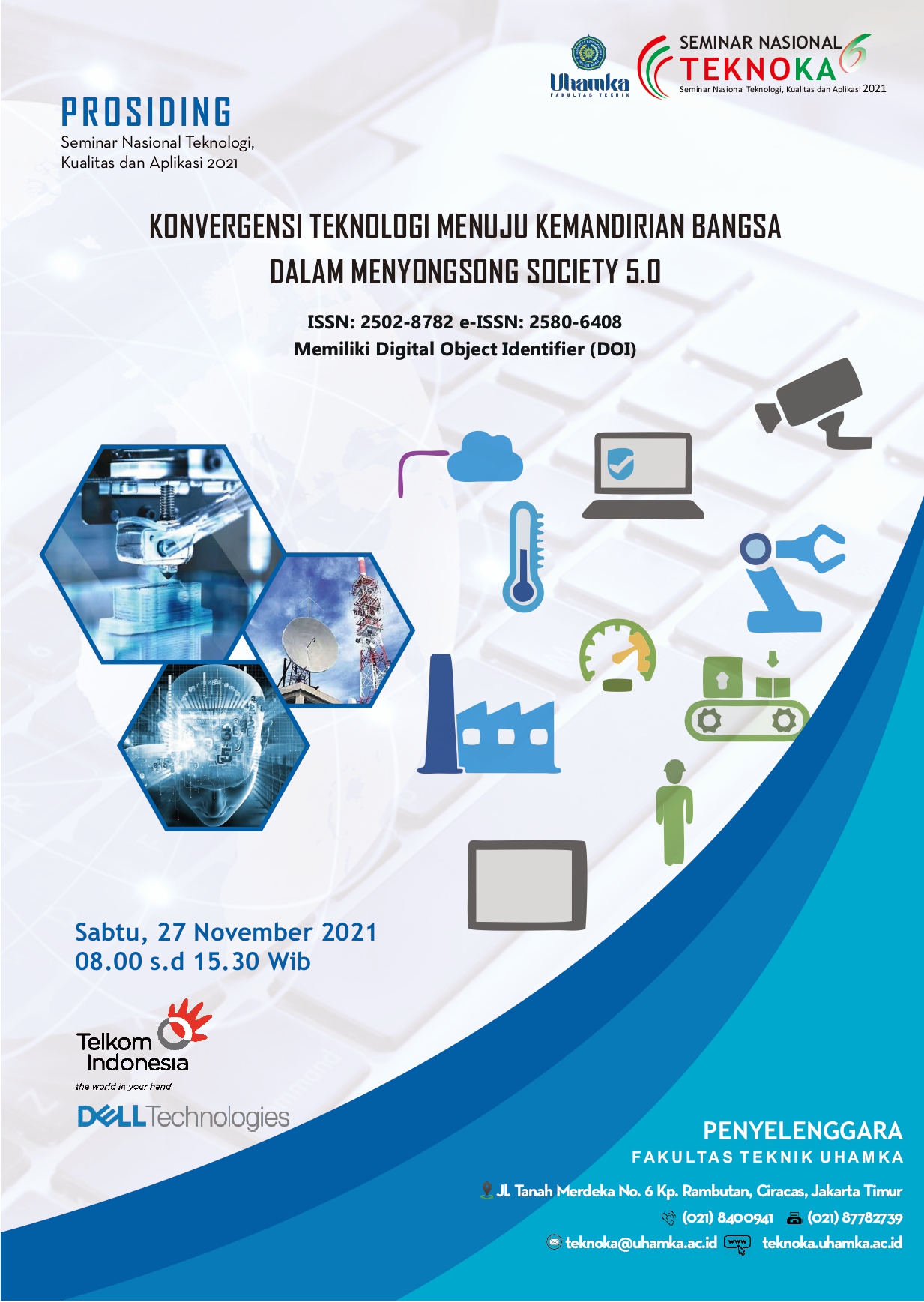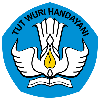Kesiapsediaan Pendidikan Keteknikan Menghadapi Masyarakat 5.0 Untuk Menghasilkan Teknologi Mandiri
Abstract
Studi ini menyajikan konsep ''Pendidikan Keteknikan 5.0 atau Engineering Education 5.0'', paradigma pendidikan masa depan yang terkait dengan visi pendidikan teknik yang dicirikan oleh kebutuhan untuk evolusi berkelanjutan, sebagai konsekuensi dari pencarian yang menantang untuk masa depan yang lebih berkelanjutan dan peduli. Di satu sisi, evolusi yang akan datang ini berasal dari kemajuan yang sangat relevan dalam pendidikan teknik yang dicapai dalam beberapa dekade terakhir dan dari pandangan yang diilhami oleh Tujuan Pembangunan Berkelanjutan. Selain itu, ini melampaui
pendekatan dan tren inovasi yang muncul saat ini, terkait dengan mendukung perluasan dan penerapan teknologi dan prinsip masyarakat 5.0. Pendidikan Keteknikan 5.0 melampaui pengembangan dan penerapan teknologi dan memasuki ranah etika dan humanisme, sebagai aspek kunci bagi generasi insinyur baru. Idealnya, insinyur yang dididik dalam paradigma pendidikan baru ini harus mampu memimpin dan membimbing pendekatan singularitas teknologi, yang telah didefinisikan sebagai titik masa depan di mana pertumbuhan teknologi menjadi tidak terkendali dan tidak dapat diubah yang mengarah pada dampak tak terduga pada peradaban manusia sambil memastikan hak asasi manusia dan berfokus pada pembangunan masyarakat global yang lebih
berkelanjutan dan adil. Untuk rentang masa 2021–2025 program studi teknik Elektro, Fakultas Teknik– Universitas Muhammadiyah Prof. Dr. HAMKA meletakkan formasi program pendidikan berdasarkan teknologi telekomunikasi yang disesuaikan dengan SKKNI (Standard Kompetensi Kerja Nasional Indonesia) ke dalam tiga bidang secara parallel yaitu; Telekomunikasi Satelit, Telekomunikasi Optik, serta Telekomunikasi Nirkabel dan Gelombang Mikro.
Downloads
References
. UNESCO, "Engineering: Issues Challenges
and Opportunities for Development,"
United Nations Educational, Scientific and
Cultural Organization (UNESCO), France,
Report, pp.392. 2010.
. Anonymous, "Realizing Society 5.0,"
Goverment of Japan, Tokyo, Leaflet, pp.1.
. M. Nagahara, "A Research Project of Society
0 in Kitakyushu, Japan," in IEEE
Conference on Control Technology and
Applications (CCTA), Hong Kong, China,
, pp. 803-804, ISBN: 978-1-7281-
-5.
. Y. Shiroishi, K. Uchiyama, and N. Suzuki,
, "Society 5.0: For Human Security and
Well-Being," Computer, Vol. 51, No. 7, pp.
-95. DOI: 10.1109/MC.2018.3011041.
. Anonymous, "Joint Declaration of the European
Ministers of Education," M. o. Education,
Ed., ed. Bologna, Italy: The European
Ministers of Education, 1999.
. E. F. Crawley, J. Malmqvist, S. Östlund, D. R.
Brodeur, and K. Edström, Rethinking
Engineering Education: The CDIO
Approach: Springer International
Publishing, 2014, ISBN: 9783319055619,
. EURAXESS, "Principles for innovative
doctoral training," ed, 2011.
. J. J. Duderstadt, "Engineering for a changing
world: a roadmap to the future of
engineering practice, research and
education," University of Michigan, Ann
Arbor, Michigan 2008.
. R. Graham, "The global state-of-the-art in
engineering education," Massachusetts
Institute of Technology, Massachusetts
. J. L. Martın-Nunez and A. D. Lantada, 2020,
"Artificial intelligence aided engineering
education: State of the art, potentials and
challenges," International Journal of
Engineering Education, Vol. (in press),
. L. J. Shuman, M. Besterfield-Sacre, and J. M.
Gourty, 2005, "The ABET professional
skills, Can they be taught? Can they be
assessed?," Journal of Engineering
Education, Vol. 94, pp. 41–55.
. A. D. Lantada and C. D. Maria, 2019,
"Towards open - source and collaborative
project based learning in engineering
education: Situation, resources and
challenges," International Journal of
Engineering Education, Vol. 35, No. 5, pp.
–1289.
. B. Gile, The Renaissance engineers, 1st ed.
Massachusetts: The MIT Press, 1966,
. N. Sonnad, "Google Translate’s gender bias
pairs “he” with “hardworking” and “she”
with lazy, and other examples," in Quartz,
ed, 2017.
. J. Hughes, European textbook on ethics in
research. European Commission: European
Union, 2010,
. M. D. Wilkinson, M. Dumontier, I. J.
Aalbersberg, G. Appleton, M. Axton, A.
Baak, N. Blomberg, J.-W. Boiten, L. B. da
Silva Santos, P. E. Bourne, J. Bouwman, A.
J. Brookes, T. Clark, M. Crosas, I. Dillo, O.
Dumon, S. Edmunds, C. T. Evelo, R.
Finkers, A. Gonzalez-Beltran, A. J. G.
Gray, P. Groth, C. Goble, J. S. Grethe, J.
Heringa, P. A. C. ’t Hoen, R. Hooft, T.
Kuhn, R. Kok, J. Kok, S. J. Lusher, M. E.
Martone, A. Mons, A. L. Packer, B.
Persson, P. Rocca-Serra, M. Roos, R. van
Schaik, S.-A. Sansone, E. Schultes, T.
Sengstag, T. Slater, G. Strawn, M. A.
Swertz, M. Thompson, J. van der Lei, E. van
Mulligen, J. Velterop, A. Waagmeester, P.
Wittenburg, K. Wolstencroft, J. Zhao, and
B. Mons, 2016, "The FAIR Guiding
Principles for scientific data management
and stewardship," Scientific Data, Vol. 3,
No. 1, pp. 160018. DOI:
1038/sdata.2016.18.
. D. L. Fernandez, L. Raya, F. Ortega, and J.
Garcıa, 2019, "Project based learning meets
service learning on software development
education," International Journal of
Engineering Education, Vol. 35, No. 5, pp.
-1445.
. G. Guest, 2006, "Life long learning for
engineers: a global perspective," European
Journal of Engineering Education, Vol. 31,
No. 3, pp. 273–281.
. F. Falcone, A. V. Alejos, J. G. Cenoz, and A.
L. Martın, 2019, "Implementation of higher
education and life long learning curricula
based on university-industry synergic
approach," International Journal of
Engineering Education, Vol. 35, No. 6, pp.
-1583.
. Y. Jin, S. Chripa, and S. Roche, "The role of
higher education in promoting life long
learning," in UNESCO Institute for Lifelong
Learning, ed Hamburg: UNESCO, 2015,
pp. 1–198,
. C. Liu, S. L. Solis, H. Jensen, E. Hopkins, D.
Neale, J. Zosh, K. Hirsh-Pasek, and D.
Whitebread, "Neuroscience and learning
through play: a review of the evidence," The
LEGO Foundation, Denmark 2017.
. A. D. Lantada, 2011, "Learning Through Play
in Engineering Education," International
Journal of Engineering Education, Vol. 27,
No. 3-4, pp. 692-692.
. UN, "Transforming our world: the 2030
Agenda for Sustainable Development," vol.
Resolution: A/RES/70/1, ed. Paris:
UNESCO, 2015.
. U. Nations. Sustainable Development Goals.
Available:
https://sustainabledevelopment.un.org/.
[Accessed October 10th, 2021].
. A. D. Lantada, J. M. Munoz-Guijosa, E. C.
Tanarro, J. E. Oteroand, and J. L. M. Sanz,
, "Engineering Education for All:
Strategies and Challenges," International
Journal of Engineering Education, Vol. 32,
No. 5-B, pp. 2155-2171.
. K. A. website. Online Khan Academy founded
by Salman Khan. Available:
https://www.khanacademy.org/. [Accessed
October 10th, 2021].
. A. M. Auley, B. Stewart, G. Siemens, and D.
Cormier, "The MOOC model for digital
practice," University of Prince Edward
Island, Charlottetown, Canada, pp.1-57.
. L. Pappano. (2012, November 29th) The Year
of the MOOC. New York Times.
. A. D. Lantada, 2020, "Engineering Education
0: Continuously Evolving Engineering
Education," International Journal of
Engineering Education, Vol. 36, No. 6, pp.
–1832.
. K. V. Henning, L. Wolf-Dieter, and W.
Wahlster, 2011, "Industrie 4.0: Mit dem
Internet der Dinge auf dem Weg zur 4.
industriellen Revolution," VDI
Nachrichten, Vol. 13
Downloads
Published
How to Cite
Issue
Section
License
Copyright (c) 2022 Prosiding Seminar Nasional Teknoka

This work is licensed under a Creative Commons Attribution-NonCommercial-ShareAlike 4.0 International License.






 Supported by :
Supported by :



